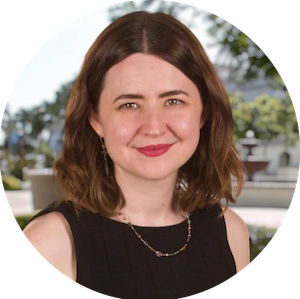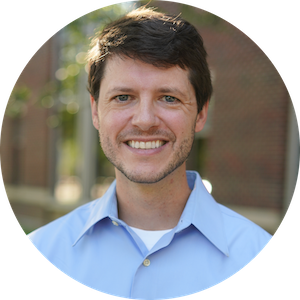
ETHICALLY SPEAKING
An interdisciplinary speaker series on contemporary moral issues
Gene editing. Artificial intelligence. A changing climate. Intersections of technology, values and communities in our rapidly changing world raise important ethical questions. Join us for a series of lectures by nationally renowned researchers, thinkers and leaders who will explore contemporary issues, ethically speaking.
Schedule 2024-25

Living Well with AI: Virtue, Education, and Artificial Intelligence
Dr. Darby Vickers • March 26, 2024 at 3 p.m. Eastern
Register to participate online
Artificial intelligence technologies are becoming ubiquitous. We must determine how to live well alongside AI. Currently, the most prominent candidate answers follow a principlist approach. We find the dominant principlist approaches to be ill-suited to providing forward-looking moral guidance regarding living well with artificial intelligence. By contrast, we argue for an Aristotelian virtue ethics approach to artificial intelligence ethics. Aristotelian virtue ethics provides a concrete and actionable guidance that is also flexible; thus, it is uniquely well placed to deal with the forward-looking and rapidly changing landscape of life with artificial intelligence.
Darby Vickers is an assistant professor of philosophy at University of San Diego. Her research focuses on expertise and skill acquisition and transmission and sits at the intersection of ethics, epistemology, and philosophy of education. Her dissertation, “Is Virtue an Expertise?: The Epistemology of Virtue in Plato’s Meno & Republic”, looked at the intersection of these topics in Plato. In her research, she draws on contemporary philosophy and cognitive science as well as her training in Ancient Philosophy. She has co-authored articles on virtue ethics, ethics of artificial intelligence, and doctoral student education. She teaches courses in practical and theoretical ethics, ancient philosophy, and philosophy of education.

How does Empathy Inform Ethics in Engineering?
Dr. Justin Hess • April 11, 2024 at 9 a.m. Eastern
Register to participate online
Empathy is increasingly being recognizes as an important facet of engineering ethics, including in the context of ethics, due to its potential to help engineers meet calls to design for society in a global world. Despite a recent concerted focus on empathy in engineering and engineering ethics, empathy remains a complex phenomenon with competing operationalizations and understandings thus making its connections to engineering ethics blurry. In this talk Dr. Hess will offer a dimensional view of empathy that distinguishes between cognitive and affective empathy and will describe how these dimensions inform distinct ways of thinking about ethics. The talk will close with a heuristic that can support engineering students in empathizing with diverse stakeholders, personally, locally, and globally.
Justin L Hess is an assistant professor in the School of Engineering Education at Purdue University. Dr. Hess’s research focuses on ethical and empathic formation in engineering education. He received his PhD from Purdue University’s School of Engineering Education, as well as a Master of Science and Bachelor of Science from Purdue University’s School of Civil Engineering. He is the editorial board chair for the Online Ethics Center, deputy director of research for the National Institute of Engineering Ethics, and past-division chair for the ASEE Liberal Education/Engineering and Society division.
View Events Archive
Sponsors of Ethically Speaking
- Center for Ethics, UCF
- Colleges of Graduate Studies, UCF
- College of Science, UCF
- College of Community Innovation and Education, UCF
- CREOL, The College of Optics and Photonics, UCF
- College of Arts and Humanities, UCF
- Office of Compliance, Ethics, and Risk, UCF
- Department of Chemistry
- Department of Physics
- Department of Philosophy
- Department of Psychology
- Department of Biology
- Department of Electrical and Computer Engineering
- Department of Materials Science and Engineering
